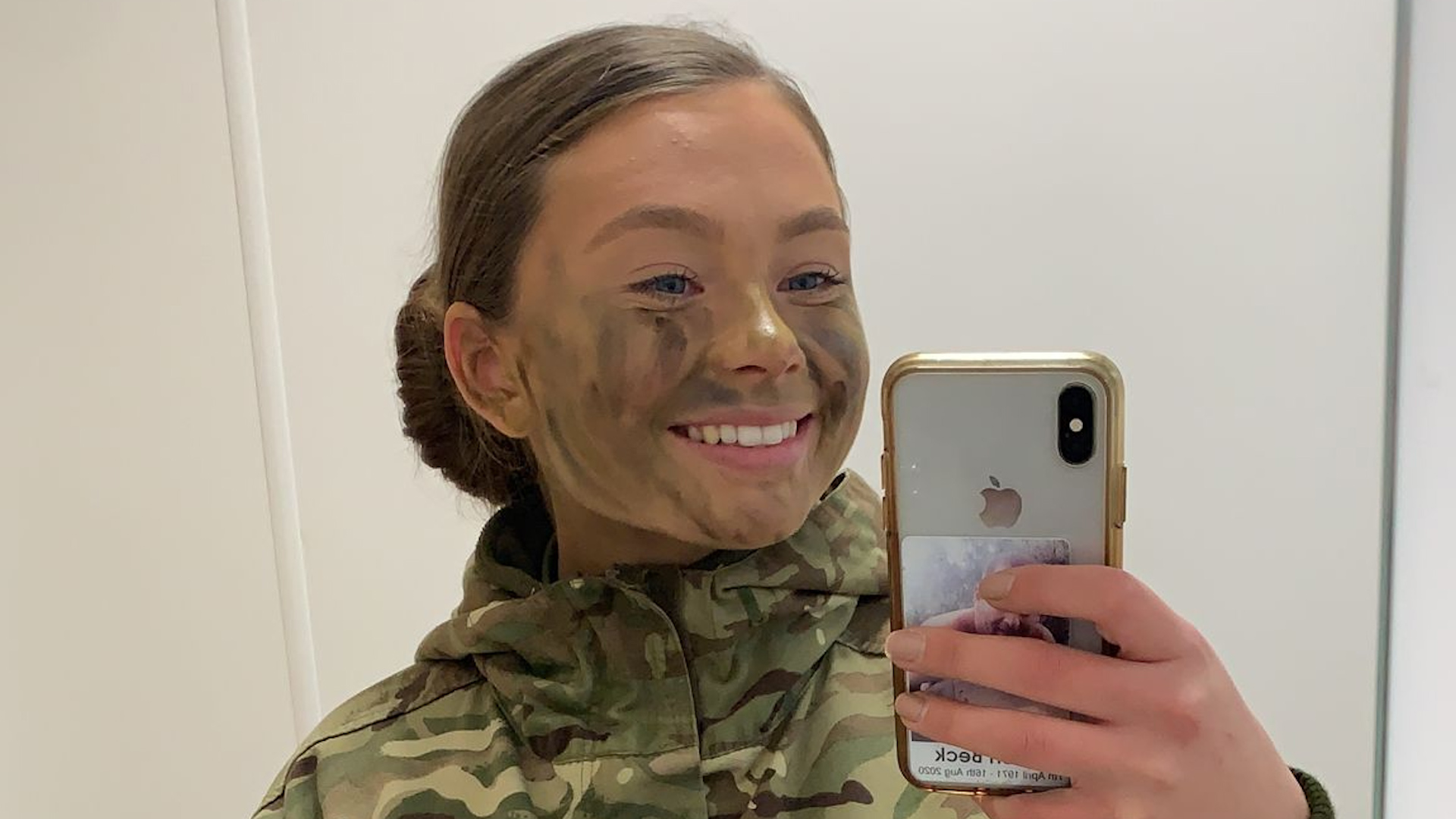
Jaysley Beck dreamt of military career, but silent battle of harassment led to tragic death

Gunner Jaysley Beck was a dedicated soldier who had dreamed of a military career from a young age.
At just 16, she joined the Army and quickly gained the respect of her peers and superiors, demonstrating a strong work ethic and a passion for her role in the Royal Artillery.
Her family and those who knew her describe her as fiercely loyal, incredibly mature for her age, and deeply committed to her military career.
She was also a beloved daughter and sister to Emilli and was known as someone who always put others before herself.
Gnr Beck was more than just a dedicated soldier; she was a source of strength to those around her.
Her mother Leighann McCready said: "She was just so loving, really had a heart of gold, would do anything for anyone. She always looked out for others and put others before herself.

"She was a very witty girl, a very mature girl. She was passionate about her career and was a strong member of her family and a loving sister."
Gnr Beck carried herself with grace and dignity, balancing a natural confidence with a deep humility that made her both respected and loved.
Yet, beneath this confident and driven exterior, Gnr Beck was facing a silent battle that would ultimately lead to a tragic end.
On 15 December 2021, she was found dead in her room at Larkhill Camp in Wiltshire.
The Army service inquiry and inquest into her death uncovered the harrowing details of the harassment she endured, laying bare the systemic failures that contributed to her death.
At the hearing, Brigadier Melissa Emmett, head of the Army Personnel Support Group, issued a formal apology, admitting: "We let her down in so many ways for which we have already apologised, and if I can apologise again, for what it's worth, I would do."
She acknowledged that the Army had failed to provide Gnr Beck with a safe environment and that existing policies had not been enough to protect her.
The inquest at Salisbury Coroner's Court heard that Gnr Beck had been subjected to persistent harassment by her immediate superior, Bombardier Ryan Mason, who sent her more than 1,000 WhatsApp messages and voicemails – a number that would increase to more than 3,500 the following month.
He pursued a romantic relationship with her, despite her clear disinterest and the fact that she was already in a relationship.
Gnr Beck, ever respectful of authority, found herself in an impossible situation.
Blocking him, as some might suggest, was not an option when the person harassing her was a superior officer.
The impact of this harassment on Gnr Beck was devastating.
Her mother recalled phone calls where her daughter expressed increasing distress.
"It was very apparent how it emotionally affected her," she said. "For Jaysley to cry, something was really hurting her."
Just a week before her death, she had left a work trip early due to his behaviour. A friend who picked her up described her as "trembling and shaking".
But the harassment did not begin or end with this individual.
A previous incident in July 2021 further highlighted the toxic environment she was forced to navigate.

During an adventure training exercise at Thorney Island, another superior, Battery Sergeant Major Michael Webber, allegedly pinned her down and attempted to kiss her.
A terrified Gnr Beck had called her friend in the middle of the night, in tears and afraid.
Despite her fear, she did not want to press formal charges, fearing backlash or jeopardising her career.
Instead, WO1 Webber, then aged 39, received nothing more than a minor sanction and was instructed to write her a letter of apology.
The Army's failure to take meaningful action in this instance likely influenced her later decision to endure, rather than report, further harassment.
The inquest heard that it is an offence under the Sexual Offences Act for someone in a position of trust to have sexual activity with a person aged under 18.
But Gnr Beck's experiences at Larkhill Camp were not isolated.
The inquest also heard damning evidence about the widespread culture of inappropriate sexual behaviour at the base.

Harassment and misconduct, especially towards female soldiers, were described as "commonplace among a significant minority of soldiers".
The inquest heard testimony from former soldier Tamzin Hort, a close friend of Gnr Beck, who spoke of the "disgusting" comments and harassment women in the Army routinely faced from male colleagues if they rejected their advances, especially after they had been drinking.
Ms Hort described an environment in which female soldiers were subjected to relentless unwanted attention, degrading remarks, and, in some cases, outright harassment.
She recounted how Gnr Beck endured inappropriate comments about her appearance and felt unable to react for fear of making the situation worse.
"She was beautiful, she was going to get comments, but she shouldn't have had to," she said.
Ms Hort shared her own disturbing experiences, including being followed to her room, feeling unsafe even in her own living quarters, and being forced to lock her door at night out of fear that male soldiers would enter her room uninvited.
"It happens to every female," she said. "It is not just in 47 Regiment."
The toxic culture, she explained, was not limited to Larkhill but was widespread in the military, leaving women feeling unsafe and powerless to challenge inappropriate behaviour.
Further testimony revealed additional troubling incidents. Former Sergeant George Higgins, who had been in a relationship with Gnr Beck, testified that she had called him in distress during the Thorney Island incident.

He also confirmed that her superior, Bombardier Ryan Mason, had been overbearing, pressuring her emotionally and attempting to manipulate situations to his advantage.
One particularly concerning event occurred on 7 December 2021, when Bdr Mason booked hotel rooms without Gnr Beck's knowledge, attempting to place her in an uncomfortable and vulnerable position.
Realising something was wrong, she contacted her father, who stayed on the phone until a trusted male colleague came to collect her.
Following her death, her family rejected the Army's claim that personal relationships and alcohol misuse contributed to her tragic decision.
They pointed instead to the systemic failures that allowed the abuse to continue unchecked.
"She was passionate about her career," her mother said. "She loved what she did and was due for a promotion."
The toxic culture and lack of support within the military had worn down an otherwise strong and ambitious young woman.
In response to the inquiry, the Army has acknowledged that the harassment was almost certainly a causative factor in her death. However, wider systemic issues remain.
The Centre for Military Justice has since called for serious sexual harassment and bullying cases to be handled by an independent body rather than within the military itself, where conflicts of interest and institutional loyalty can obstruct justice.

The revelations surrounding Gnr Beck's death have sparked renewed discussions about the treatment of women in the Armed Forces.
Multiple reports, including those by Air Chief Marshal Michael Wigston and the Defence Committee Inquiry into Women in the Armed Forces, have highlighted deep-rooted issues of bullying, sexism, and discrimination.
Yet, despite calls for reform, the Ministry of Defence continues to resist fully independent oversight of sexual misconduct cases.
The Army's response, while acknowledging Gnr Beck's suffering, has done little to assure those calling for change that meaningful action will be taken.
"When the MOD tells you it has zero tolerance for sexual harassment or assault," said Emma Norton, the family's lawyer, "it is important to bear in mind that they are only prepared to go so far".
Gnr Beck's case has exposed deep-rooted cultural issues within the Army, raising urgent questions about the protection of female soldiers and the effectiveness of the complaint system.
Brig Emmett has said that reforms have since been introduced, including the removal of the chain of command from the complaint system and the establishment of anonymous reporting hotlines.
Gnr Beck's story is not just one of individual tragedy but of institutional failure. It is the story of a young woman who gave everything to her career, only to be let down by the very institution she served.

Her death has become a rallying cry for change – one that cannot be ignored if future generations of female soldiers are to serve without fear of harassment, coercion, or neglect.
Her family continues to fight for justice, determined that her legacy will lead to lasting reform. "She had a heart of gold," her mother said. "She would do anything for anyone."
As the inquest into Gnr Beck's death concludes, those who loved her are doing everything in their power to ensure her voice is heard, even in her absence.
The coroner recorded a conclusion of suicide at the inquest of teen soldier Gnr Jaysley Beck.
If you or someone you know needs support at this time, find help available on our website.









